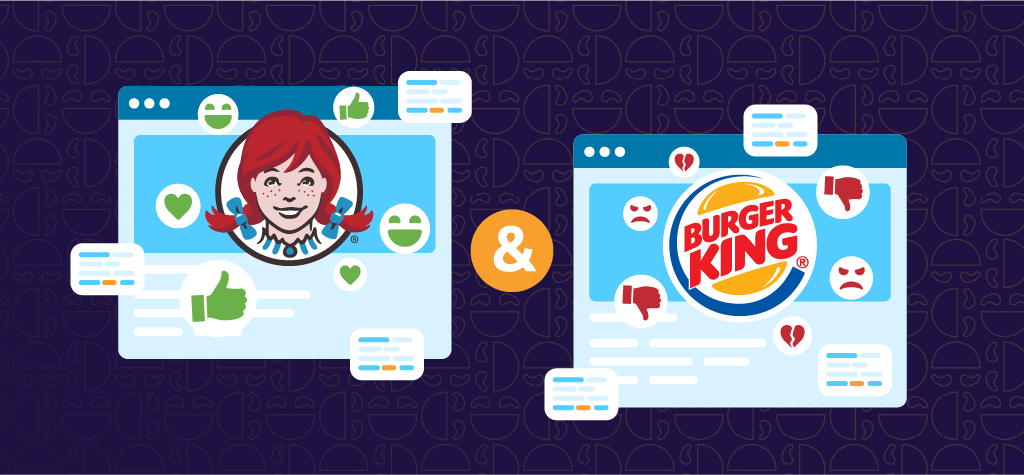In today’s digital world, marketing is more important than ever but is also more complex. The landscape constantly evolves, making it difficult for businesses to keep up with the latest trends and tactics.
From generating quality leads to managing multiple platforms, digital marketing challenges are many. If you’re struggling with any of these hurdles, don’t worry— there are solutions to help you navigate these obstacles. Let’s dive into the top challenges and how to solve them effectively.
1. Keeping Up with Rapid Changes in Digital Marketing Trends

The digital marketing world moves fast. One minute, a strategy works wonders; the next, a new search engine algorithm update throws everything off balance. Trends like SEO changes, evolving marketing strategies, and shifting consumer behaviors can make it impossible to stay on top. As a digital marketer, adapting to these changes is crucial for staying competitive.
Solution: Stay ahead by continuously learning. Follow industry blogs, attend webinars, and participate in marketing forums. Encourage your team to invest in ongoing training and stay curious. Use data-driven marketing strategies that provide insights and recommendations on the latest trends. By being proactive, you can adapt quickly to any shifts in the landscape.
2. Generating Quality Leads

Every marketer’s goal is to generate high-quality leads, but reaching the right audience can be a major pain point with increasing competition. Many businesses struggle with targeting the wrong audience or using ineffective content marketing, leading to poor lead quality. The challenge is not just about reaching people but reaching the right people.
Solution: Refine your audience targeting using data-driven insights. Understand your ideal customer and tailor your marketing campaign accordingly. Implement lead scoring systems to focus on high-value prospects. Make sure your content is optimized with relevant keywords and clear calls to action to boost engagement and attract the right audience.
3. Managing Data Privacy and Compliance

Data privacy is a hot topic, and with regulations like GDPR and CCPA, managing compliance is a big challenge for digital marketers. Mishandling customer data can lead to severe penalties and damage your reputation, so developing a marketing plan that respects user privacy is essential.
Solution: Stay informed about the latest data privacy laws affecting your market. Be transparent in your data collection methods and ensure you have clear consent from your audience. Invest in tools that help manage data compliance, like consent management platforms, and regularly review your processes to keep up with regulations.
4. Creating Engaging and Relevant Content

Content marketing remains king, but creating content that truly engages your audience is easier said than done. Many marketers face content fatigue, struggle with idea generation, or find their content doesn’t connect with their target audience. Balancing content creation with brand awareness efforts is a common struggle.
Solution: Start by conducting audience research to understand what your audience cares about. Use tools like surveys and social media polls to gather insights. Leverage machine learning tools for content creation and idea generation and repurpose existing content to give it new life. Focus on quality over quantity, ensuring every piece of content serves a purpose and enhances the user experience.
5. Measuring ROI and Proving Effectiveness

Proving the ROI of your digital marketing efforts can be a real challenge, especially when aligning your metrics with business goals. Tracking the success of your marketing campaign across multiple marketing channels can feel overwhelming, but demonstrating the impact of your work is crucial.
Solution: Set clear, measurable objectives for each campaign from the start. Analytics tools like Google Analytics or HubSpot can track performance and adjust strategies as needed. Regularly report on key performance indicators (KPIs) that align with your business goals, such as conversion rates, customer acquisition costs, and revenue growth. This data helps to refine your marketing plan and optimization campaigns.
6. Managing Multi-Channel Marketing

Marketing across multiple channels—social media, email, website, etc. It can feel overwhelming. It’s easy to end up with inconsistent branding or fragmented messaging, which confuses your audience and dilutes your efforts. Effective multi-channel management is essential for maintaining a strong brand presence.
Solution: Develop a unified content calendar that outlines your messaging across all platforms. This helps keep everything aligned and ensures consistency in your brand awareness efforts. Utilizing automation tools to streamline your multi-channel efforts, making it easier to manage without losing quality. A consistent brand voice and style guide are essential in maintaining a cohesive message.
7. Dealing with Budget Constraints

Every marketer knows the pain of working within a tight budget. The challenge lies in maximizing resources while still achieving ambitious goals. When funds are limited, prioritizing marketing channel spending is crucial.
Solution: Focus on channels and tactics that offer the highest ROI, like organic SEO and email marketing, which can deliver great results without a hefty price tag. Regularly audit your marketing spend to identify and cut out low-performing activities.
Explore cost-effective alternatives like partnering with influencers or leveraging user-generated content (UGC), which can amplify your reach without breaking the bank.
8. Scaling

Scaling is a top challenge in digital marketing. It requires more resources, managing increased data, and maintaining consistent channel messaging. Companies struggle with new technology, high-quality content production, and quick adaptation to market changes. Strategic planning, the right tools, and a flexible approach are crucial for sustainable growth.
Solution: To tackle scaling, teams can use automation and AI-driven tools like Copilot and ChatGPT to streamline processes, manage data, and enhance productivity. Scalable technology platforms help handle growing marketing efforts while reducing manual work. A data-driven approach with continuous strategy refinement keeps campaigns optimized and adaptable.
Hiring a fractional marketing department is also an effective solution. These teams provide experienced professionals on a part-time or project basis. This allows companies to scale without the costs of full-time hires. Fractional marketing teams bring specialized skills, fresh insights, and immediate expertise, helping businesses execute strategies efficiently. They integrate well with in-house staff, ensuring alignment with business goals.
Conclusion
Digital marketing challenges are inevitable, but they don’t have to hold you back. You can overcome these burdens and achieve your marketing goals by staying informed, using data-driven strategies, and continuously refining your approach.
Whether it’s keeping up with trends, generating quality leads, or managing compliance, each challenge presents an opportunity for growth. Embrace these challenges as a chance to improve and innovate.
With the right approach, you can turn these obstacles into stepping stones for success in the ever-changing world of digital marketing.
Do you have a digital marketing challenge keeping you up at night? Don’t hesitate to reach out for expert guidance – every challenge has a solution waiting to be found!
Frequently Asked Questions
How do I prioritize which digital marketing challenges to tackle first when my resources are limited?
To prioritize digital marketing challenges with limited resources, focus on the issues directly impacting your immediate business goals, such as revenue generation or lead quality. Start with challenges that offer quick wins that require minimal effort but yield high returns. Use data to identify which areas need urgent attention and will drive the most significant results, and regularly reassess your priorities as your business needs evolve.
What specific tools or platforms are best for automating multi-channel marketing management?
Tools like HubSpot provide an all-in-one solution for automating multi-channel marketing, including email, social media, and content marketing. Hootsuite and Buffer streamline social media scheduling and analytics. Mailchimp and ActiveCampaign offer strong automation features for email marketing, and CoSchedule helps keep content aligned across various channels. Choose tools based on your specific needs and the platforms most crucial to your strategy.
How can I effectively measure the long-term impact of my digital marketing strategies beyond immediate KPIs?
To measure the long-term impact of your marketing strategies, focus on metrics like customer lifetime value (CLV), brand awareness, repeat purchase rates, and referral traffic. Cohort analysis helps track customer behaviour over time, revealing how well your efforts build loyalty and sustained engagement. Review these metrics to understand how your strategies contribute to long-term business growth and refine them as needed.




